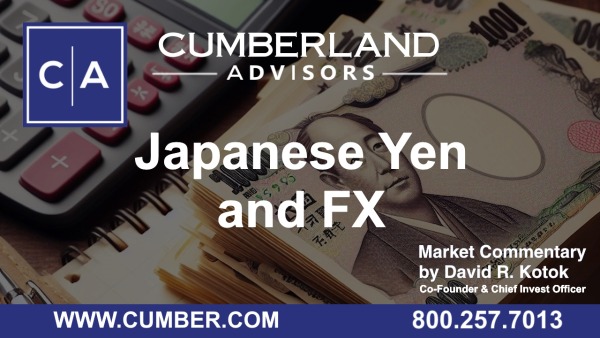Foreign currency exchange rates against the dollar are becoming an increasingly volatile sector as the Fed goes from “higher for longer” to “high for some time” to “we’re not sure what the Fed will do.” Results: Differences in anticipated future interest rates among the major currencies are the adjusting factor in FX trading.
Please remember that nearly all international commerce involves FX hedging and trading. The FX currency derivatives “book” is over $100 trillion in notional value, according to the BIS (Bank for International Settlements. (https://www.bis.org/publ/otc_hy2311.htm). This is a record high. Note that the total notional derivatives book worldwide is now about $700 trillion. That is also a record high. Hat tip to my GIC colleague Paul Horne for pointing out this latest BIS compilation. Paul and I are colleagues and members of the Advisory Board of the GIC ‘s College of Central Bankers. See: www.interdependence.org.
In my opinion, an adjustment process is underway. It includes the exchange ratio between the US dollar and Japanese yen. The dollar is now without the support of futures markets anticipating higher interest rates. The yen now has the support of futures markets that may be anticipating that the Japanese are finally removing yield curve control. The days of Japanese zero interest rate policy (ZIRP) may possibly end in 2024.
Here’s a look at the 50-year history of the yen/dollar exchange rate. It encompasses the entire period of Cumberland Advisors’ existence. We hope it creates a perspective for readers.

I can remember the days when the yen was more than 300 to the dollar. In Cumberland’s half century of history, I have watched these massive shifts occur. I have traveled to Japan on several occasions and even met with folks in the Bank of Japan. The policy of the BoJ was to maintain political stability and alter the inflation outlook and savings outlook of their aging society.
At one private discussion, a very senior BoJ person (anonymity preserved by me, as I am respecting the privacy of that meeting) explained this policy to me. He said: “Show me one government in any major country that has been deposed and replaced when the inflation rate was near zero and interest rates about the same.” I could not give him an example at the time and still cannot find one among the G7 countries. To understand what Japan’s policy has been requires that one accept this statement at face value.
Now that the world’s Covid economic shock is subsiding, these policies will change and are already changing.
Where things go from here is anyone’s guess.


